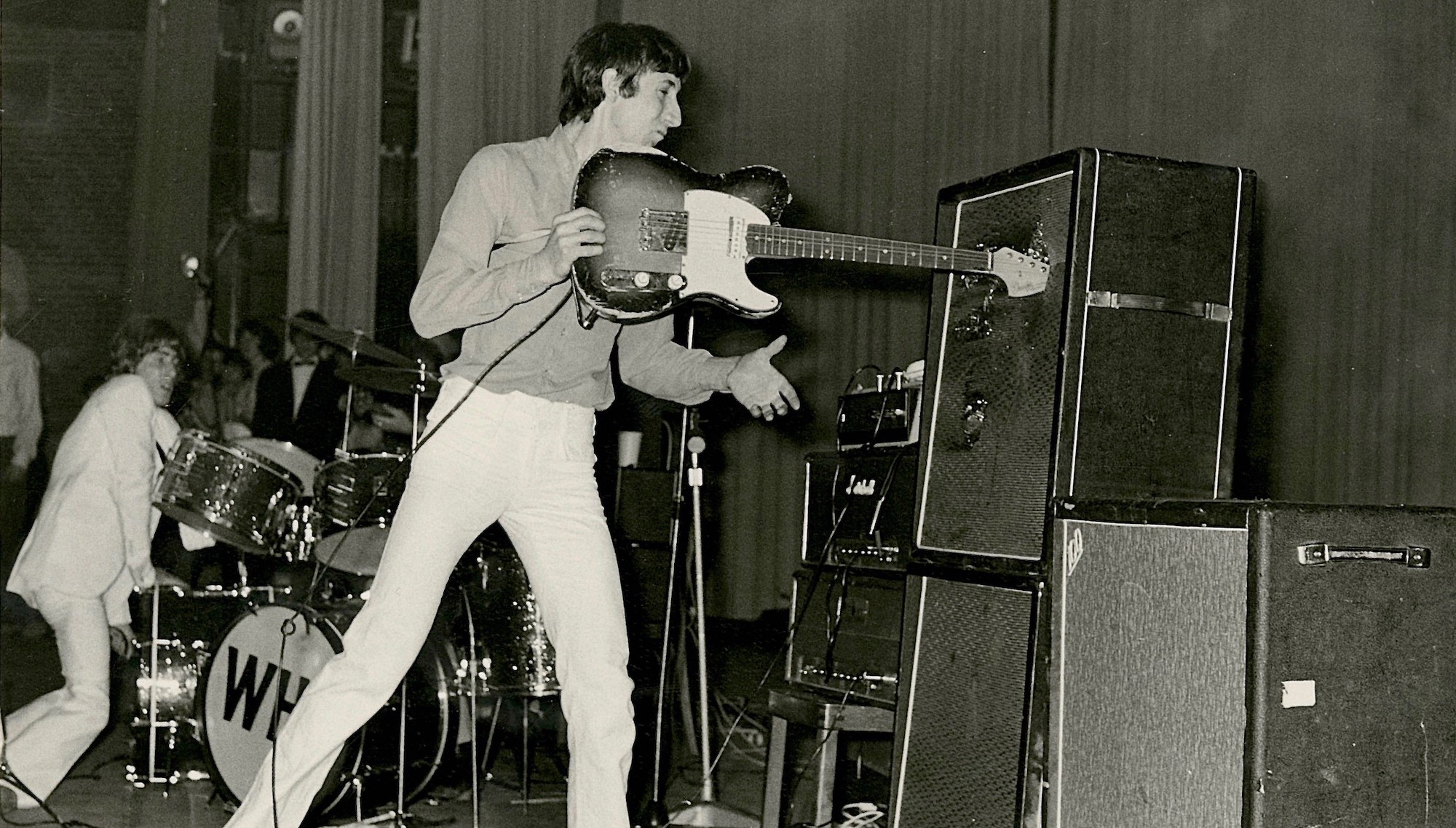“When we first came to New York, we'd play four times a day. I only had one guitar, so I'd have to break it and fix it four times a day”: Pete Townshend talks guitar smashing, and what he had to do to keep his gear functioning
John Hiatt once sang, “Oh, it breaks my heart to see those stars smashing a perfectly good guitar,” but you'll never hear the Who guitar legend apologize for his early stage antics

Peanut butter and jelly, Simon and Garfunkel, Pete Townshend and smashing guitars; some things are just meant to go together.
During a recent appearance on The Tonight Show Starring Jimmy Fallon, the Who guitarist discussed his affinity for breaking guitars during the band’s live shows, and why he’s never felt a deep bond with any of the instruments he's reduced to splinters.
“Young kids that buy their first really good guitar end up in a love relationship with it; I've never had that,” Townshend explains.
“I think a lot of people struggle to buy their first instruments and they build up a relationship with them.
“In those days, every kid wanted to be Elvis Presley and they wanted the cheap guitars [that he'd play]. They were trash guitars; the kind of guitars your grandmother would buy you for Christmas; they'd be unplayable.
“My dad was a professional musician and I said ‘Please – you buy me my first guitar,’” he added. “But he said ‘Your grandmother wants to buy you one.’
“So my grandmother bought me my first guitar from off the wall of the Greek restaurant in Eeling where we lived. No one's gonna tell me that that hunk of wood is sacred. Not to me.”
All the latest guitar news, interviews, lessons, reviews, deals and more, direct to your inbox!
Asked by Fallon what happened to his guitars after he’d smashed them, he revealed how in the early days he would have to resurrect his guitar to break it again. And again. And again.
“When we first came to New York, we did a thing called The Murray the K Show and we'd play four times a day,” Townshend says. “I only had one guitar, so I'd have to break it and fix it [by gluing it back together] four times a day.
“In the end, it was more glue and string [than anything else].”
The pair’s chat also saw Townshend relaying how Roger Daltrey had “challenged” him to join the band as the vocalist looked to recruit best-in-class band members from his school.
“He was a short kid – he still is short – and he claimed he was bullied a lot at school. His system for dealing with that was to become a fighter,” Townshend explains.

“So I was kind of wary of him, and he'd left the year before me. One day, I was talking to a teacher and Roger walked in with a guitar he'd made himself and interrupted the teacher. He said to me: ‘You play guitar?’ and I said ‘yeah.’ ‘I heard you're not bad. My house 7 o'clock tonight.’ So, I went and I got hired that way.”
Townshend is on a hot streak of interviews at the moment. He recently sat down with Guitarist to discuss how he feels his rhythm playing, rather than his virtuosity has helped him stand out over the years.
During that interview, he also revealed how Leslie West told him how he preferred his expansive rock licks over Eric Clapton’s blues vocabulary.
A freelance writer with a penchant for music that gets weird, Phil is a regular contributor to Prog, Guitar World, and Total Guitar magazines and is especially keen on shining a light on unknown artists. Outside of the journalism realm, you can find him writing angular riffs in progressive metal band, Prognosis, in which he slings an 8-string Strandberg Boden Original, churning that low string through a variety of tunings. He's also a published author and is currently penning his debut novel which chucks fantasy, mythology and humanity into a great big melting pot.

